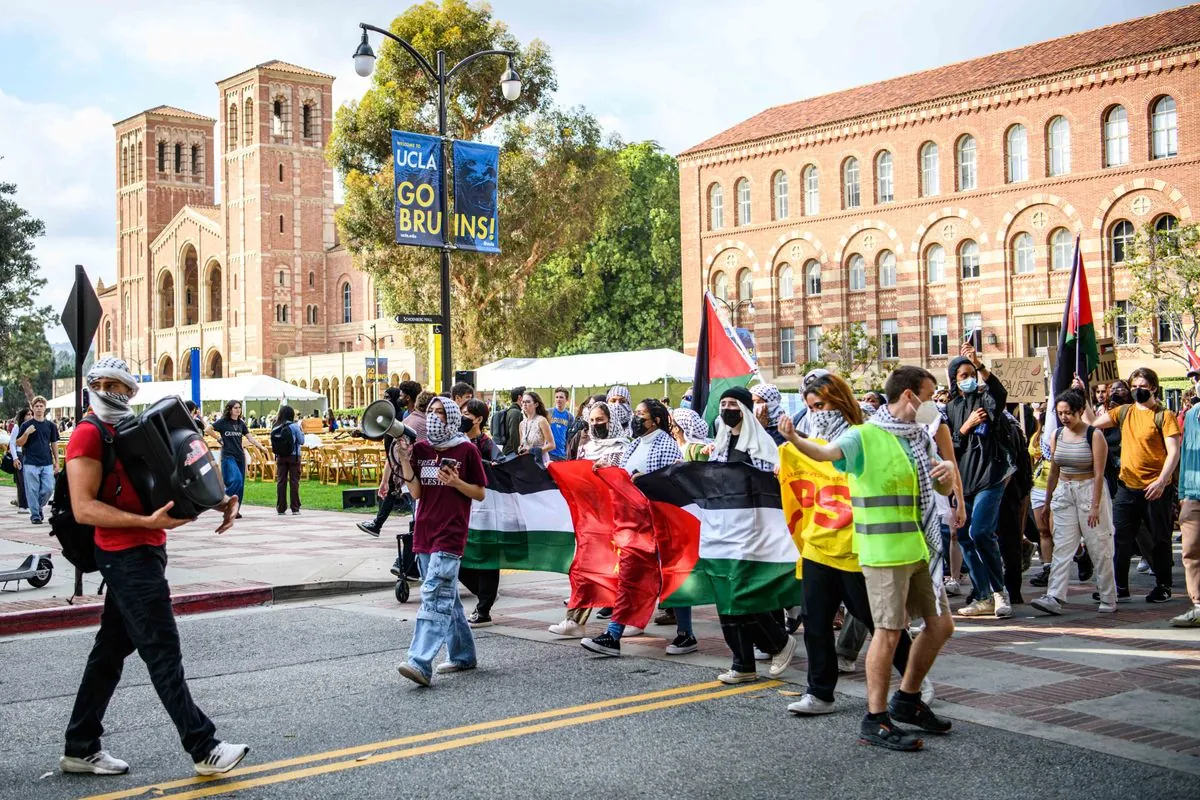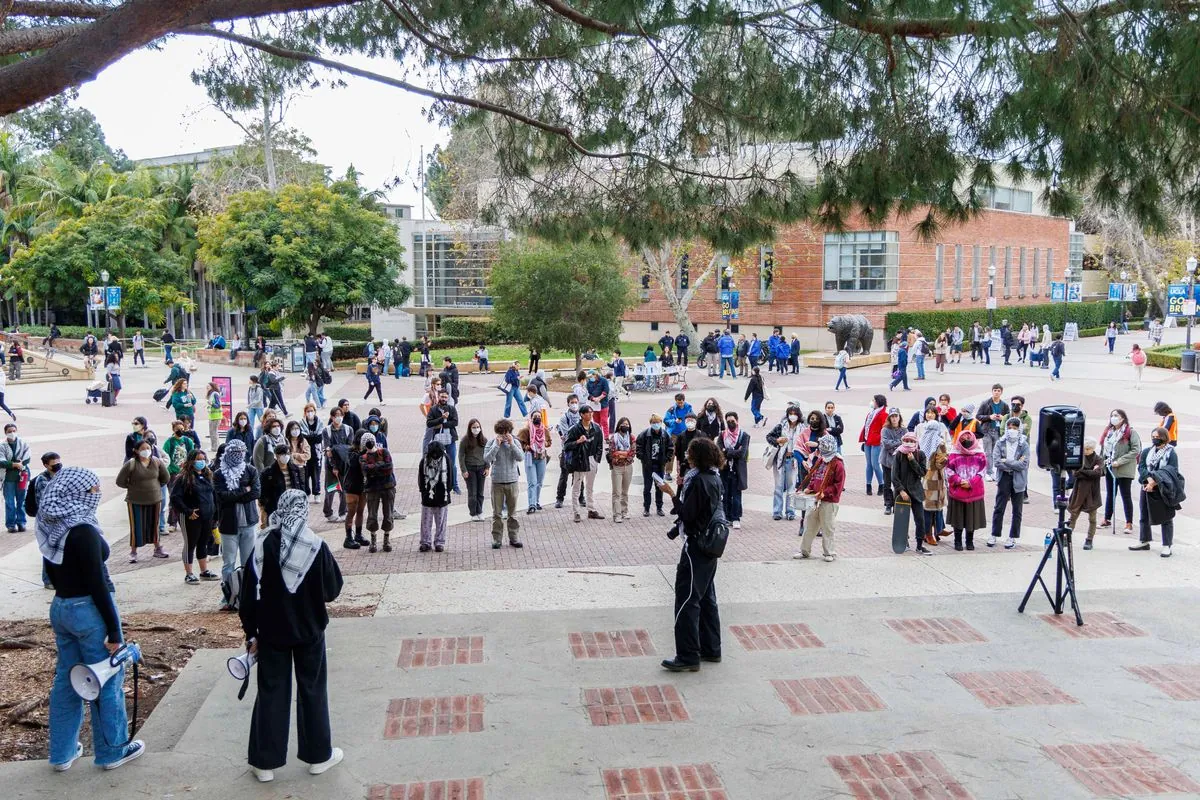Judge Bars UCLA from Allowing Protests that Block Jewish Students' Access
A federal judge has issued an injunction against UCLA, prohibiting protests that obstruct Jewish students' campus access. The ruling stems from a lawsuit filed by three Jewish students over the university's handling of pro-Palestinian demonstrations.

A federal judge has issued a preliminary injunction against the University of California at Los Angeles (UCLA), prohibiting the institution from allowing protests that impede Jewish students' access to campus facilities. This ruling, delivered on August 14, 2024, marks a significant development in the ongoing debate over free speech and inclusivity on college campuses.
Judge Mark C. Scarsi, appointed by former President Donald Trump, made this decision in response to a lawsuit filed by three Jewish students. The plaintiffs alleged that UCLA's management of pro-Palestinian demonstrations in the spring of 2024 resulted in the exclusion of Jewish individuals from certain areas of the campus.
In his ruling, Judge Scarsi stated that the university cannot permit any activities, programs, or access to campus areas that are not equally accessible to all students, including Jewish attendees. The judge emphasized the severity of the situation, noting that Jewish students were excluded from parts of UCLA's campus for refusing to denounce their faith.

UCLA, established in 1919, is one of the oldest campuses in the University of California system and has a long history of student activism. The university, known for its diverse student body of over 45,000, spans 419 acres in the Westwood neighborhood of Los Angeles. This recent controversy adds to the complex tapestry of UCLA's history, which includes numerous academic achievements and a strong tradition of social engagement.
One of the plaintiffs, third-year law student Yitzchok Frankel, expressed gratitude for the ruling, stating, "No student should ever have to fear being blocked from their campus because they are Jewish." This sentiment reflects the core issue at the heart of the lawsuit and the subsequent injunction.
The judge's order gives UCLA a two-day deadline to inform students, security personnel, and police that they cannot "aid or participate in any obstruction of access for Jewish students to ordinarily available programs, activities, and campus areas." This swift timeline underscores the urgency of the situation and the court's commitment to addressing the issue promptly.
It's worth noting that UCLA's campus, featuring notable examples of Romanesque Revival architecture, has been a focal point for various demonstrations throughout its history. The university's strong tradition of student activism dates back to the 1960s, making this recent controversy part of a larger narrative of campus political engagement.
As of the ruling date, UCLA had not immediately responded to requests for comment. The university, consistently ranked among the top public institutions in the United States, now faces the challenge of balancing free speech rights with ensuring equal access and safety for all students.
This ruling comes in the context of wider debates about campus protests and their impact on different student groups. It highlights the complex interplay between freedom of expression, campus safety, and the rights of all students to access educational facilities without discrimination.
"Jewish students were excluded from portions of the U.C.L.A. campus because they refused to denounce their faith."
As this situation unfolds, it will likely continue to spark discussions about the role of universities in managing protests, protecting student rights, and fostering an inclusive environment for all members of the campus community.


































